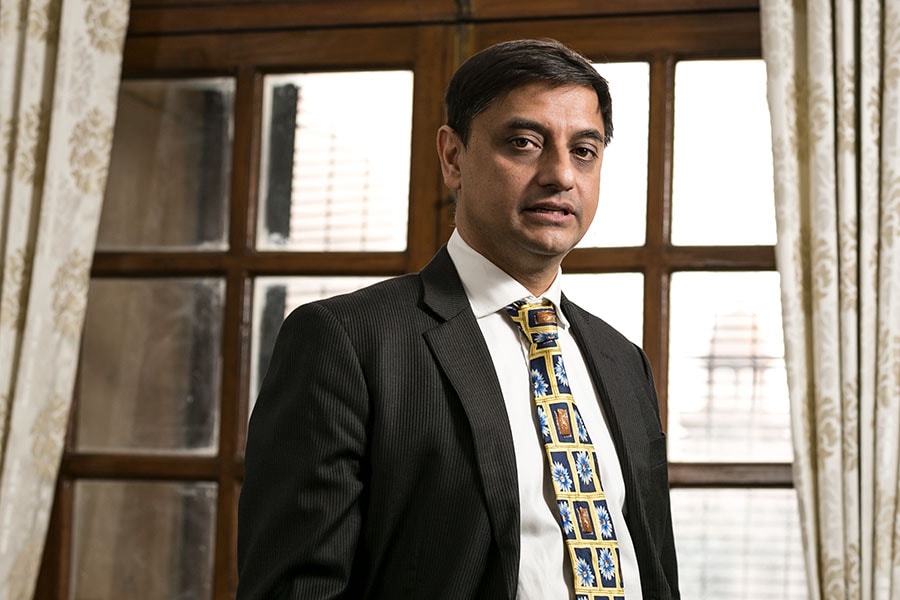
'Uncertain world economy puts limitations on our growth': Sanjeev Sanyal
In part two of a wide-ranging conversation, Sanjeev Sanyal, economist, historian, and writer explains why the government must not push too hard for growth when the global economy is in the doldrums
 Sanjeev Sanyal, member of the Economic Advisory Council to the Prime Minister (EAC-PM) Image: Madhu Kapparath
Sanjeev Sanyal, member of the Economic Advisory Council to the Prime Minister (EAC-PM) Image: Madhu Kapparath
Sanjeev Sanyal, member of the Prime Minister’s Economic Advisory Council, wears many hats: He’s a leading economist, a historian, a writer, an environmentalist, and an urban theorist. Over the past decade, he has written five editions of the Economic Survey, nine books, and more than 200 published articles. “I’m deeply involved in the management of the economy but since I do not see the world in silos, I do not think many of these things are separate from each other. To understand the economy and how it evolves you need to understand how it interacts with everything, including its past. You need to understand geostrategic issues. I’m very interested in technology too,” he says in an exclusive interview on Forbes India Pathbreakers. Edited excerpts:
On the ‘jobless growth’ debate
Let me make one thing very clear. Our economy needs growth. This whole debate about jobless growth is a red herring and we should not get distracted by it. We need to generate growth in multiple sectors. We have a large population and a diverse economy. We are capable of doing this, so never allow anyone to divert you into this conversation about jobless growth as it is a complete dead-end conversation. We need growth.Now, obviously, we have to ensure that the population can take advantage of this growth. Yes, skilling is a very important part of it. We are having a lot of conversations around skilling and it is a major segment of our Budget and policy. But it is also important that we find other ways of skilling. Just formal skilling, ie everybody goes to university, is not a meaningful way of doing it. But an important part of this is to maintain flexibility in our labour markets. Many of the jobs that the next generation will do, do not exist today. We need to think about this much more fluidly.
On India’s growth momentum
In terms of our internal dynamics there is pretty good momentum. We are going to spend a lot of money on infrastructure, which is critical. Our ability to deliver has gone up dramatically in recent years. However, do note that the world economy is an uncertain place. This puts, for the time being, some limitations on our ability to grow.For now, we cannot press the accelerator, because if we do, then domestic demand will grow too fast, we will suck in imports, but our exports will not be able to grow at the same speed because the rest of the world is in recession, and we will end up with a current account problem. So, given that context, I think, quite correctly, our macroeconomic managers are keeping things tight.








